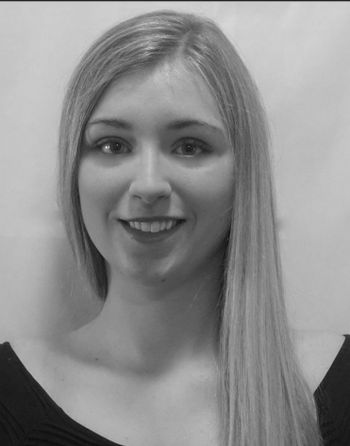DEI prof fired for viewpoint diversity speaks out, says she was deemed 'dangerous' for encouraging dialogue
Dr. Tabia Lee was called a “white supremacist,” a “right-wing extremist,” and a “dirty Zionist” for supporting viewpoint diversity in diversity, equity, and inclusion studies.
'Critical Social Justice ideology demands absolute and unwavering allegiance and conformity to it and the exclusion of all other viewpoints that may challenge it.'
Dr. Tabia Lee made national headlines last week after she announced publicly that she had been terminated from her tenure-track position of at De Anza Community College in California for advocating for academic freedom on issues of diversity, equity, and inclusion.
Lee, who served as De Anza’s faculty director for the Office of Equity, Social Justice, and Multicultural Education, sat down with Campus Reform to explain in detail how one of the largest community colleges in California established “a constant pattern” of excluding and marginalizing her for refusing to toe the line with respect to critical social justice orthodoxy.
[RELATED: PhD student fears risking career by speaking out against ‘The 1619 Project’]
“In my work, I don’t ever prioritize any one particular ideology over another,” Lee articulated as she explained her teaching and research philosophy.
Her scholarship “really is just raising awareness about these different lenses or mind frames or ideologies” that influence the way educators approach identity politics topics.
In her role at De Anza, Lee hosted numerous workshops and education sessions for faculty and students that fostered respectful dialogue between those of “divergent perspectives” to identify “some commonalities that we maybe can harvest to best serve” the community.
However, such exercises, Lee says, were deemed “deeply offensive” and “dangerous” by colleagues and superiors in the Office of Equity, Social Justice, and Multicultural Education, who openly and proudly self-identify as “socialists” and “third-wave anti-racists” inspired by Ibram X. Kendi and others.
Lee articulates that the attitude against her work was clearly established by her colleagues: “We’ve worked hard to advance anti-racism and nothing’s gonna get in the way.”
“Critical Social Justice ideology,” Lee observes, “demands absolute and unwavering allegiance and conformity to it and the exclusion of all other viewpoints that may challenge it.”
One of the most egregious instances of intimidation happened early into Lee’s tenure at De Anza as the facilitator of the Equity Action Council when she attempted to better organize the workflow of her department.
Lee says her colleagues reacted to her suggestion of setting a weekly agenda and taking meeting notes by saying she was “white-speaking” and “whitesplaining.”
[RELATED: UChicago announces ‘The Problem with Whiteness’ course]
“‘You’re being transactional. You’re supporting white supremacy,’ and I was like … ‘what is this coming from?’”
“[A]s a racialized black woman” who grew up experiencing legitimate instances of white supremacy and Neo-Nazism in the Central Valley, Lee said this experience at De Anza “felt very degrading” on a personal level.
Over time, “the attacks were so personal,” Lee noted, “like … accusing me of being a white supremacist, accusing me of being aligned with right wing extremists. I got called a dirty Zionist by people, all kinds of just … meanness.”
When asked about how these pejoratives made her feel, Lee spoke with emotion.
“I feel like some people have disregarded my humanity, my professionalism, my personhood, all for ideological reasons and that hurts.”
Lee continued to serve the De Anza community, but things “didn’t get better. They ramped up.”
“I had student support and I was working with students and I was working with community partners, and [was] finding ways to still do my job and then they would just ramp up the harassment and the bullying and find new ways to innovate to stop me from being able to do any parts of my job.”
As far as the next steps in potentially pursuing legal action against De Anza, Lee says, “I haven’t ruled it out.”
“I think people need to know [what happened] because if I just … don’t tell my story, then … what’s the point? How do we grow?”
[RELATED: ‘Toe the line:’ Professor leaves academia as DEI corrupts STEM]
“I’ve been warned by people,” she continued, “if you ever want a tenure track position … you should say nothing, [but] if I didn’t say something, then I think I would lack integrity because what I’m doing is I’m setting up the next person to come through and for it to happen again.”
The De Anza Community College system responded to Campus Reform’s request for comment by noting, “Without commenting on any specific matter, we can share that faculty members have comprehensive due process and appeal rights both under the law and negotiated through their bargaining unit.”
Follow Gabrielle M. Etzel on Twitter.

